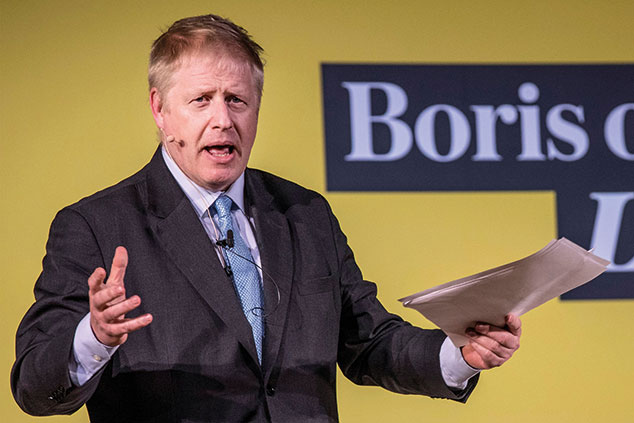
Donald Trump may have been elected by just 46% of 63 million Americans, says Simon Jenkins in The Guardian. But Britain’s next prime minister will be chosen by 124,000 members of a “benighted Conservative party”. And those members must choose between two candidates selected by their party’s 314 MPs. Theresa May resigns on Friday, and her successor is expected to be selected by the week starting 22 July. At the moment, the most likely outcome is Boris Johnson and Michael Gove being offered to members, and Johnson being chosen. Eleven MPs are currently in the running, but the numbers are expected to be whittled down fast as a new ruling by the 1922 Committee means that an MP now requires the support of eight MPs in order to enter the contest, say Patrick Scott, Ashley Kirk and Asa Bennett in The Daily Telegraph. At present the frontrunners are Johnson, who has the publicly declared support of 40 Tory MPs, and Gove, who has the backing of 26. Jeremy Hunt and Dominic Raab have the support of 25 and 22 respectively.
The Michael Jackson strategy
If you look at the parliamentary numbers for May’s leadership challenge and three Brexit deal defeats, the majorities “provide a good rough estimate between the centre – loosely defined as former May loyalists and Brexit deal backers – and the right among Tory MPs, which is now broadly 62:38,” says Martin Kettle in The Guardian. With around 180 of 314 Tory MPs yet to publicly back a candidate, centrist candidates are “fishing in a significantly bigger pool of votes”. This is not the impression you get from the media coverage, which “depicts the contest as one in which the Tory centrist candidates are jockeying to appeal to the parliamentary party’s right-wing hard-Brexit minority, and to the millions of voters who flocked to” Nigel Farage’s Brexit Party during the European elections. This will be the first time grassroots members have chosen a prime minister. This is a serious responsibility. And a lot can happen on the campaign trail. Johnson “blew up on the launchpad” in 2016. The contest is much more open than many people think, and it’s not impossible that an outsider such as Rory Stewart, who seems to have grasped that this election isn’t a “race to appease the hard right”, could surprise us.
It is notable that Johnson now has the backing of Robert Jenrick, Rishi Sunak and Oliver Dowden, all seen as “sensible centrists” whose decision will encourage other One Nation rising stars to “get on board”, says Matt Chorley in The Times. In a piece for the paper, the trio warn that the Tories face an “existential threat” and that only Johnson can save them. At his first major set of hustings this week, Johnson insisted he was “best placed to beat Jeremy Corbyn and put Nigel Farage back in his box”, and said it was critical to deliver Brexit by 31 October. While acknowledging that most centrist Tories will not countenance a no-deal exit, he said that any government should prepare for one. “The more determined we are to pursue no-deal, the less likely we will have to deploy it.”
And there you have it, says Daniel Finkelstein in The Times. Unfortunately, no candidate, Johnson included, has a “brilliant but secret” solution to Brexit. “If he hasn’t already gone public with a startling scheme,” he hasn’t got one. Quite, says Marina Hyde in The Guardian. Ultimately, “a ‘new face’ is going to solve the Tory party’s underlying problems about as much as a ‘new face’ used to solve Michael Jackson’s underlying problems”. My advice is to start drinking as soon as you see the opening credits for this election’s TV debates. “Then keep doing it until the mid-2030s.”